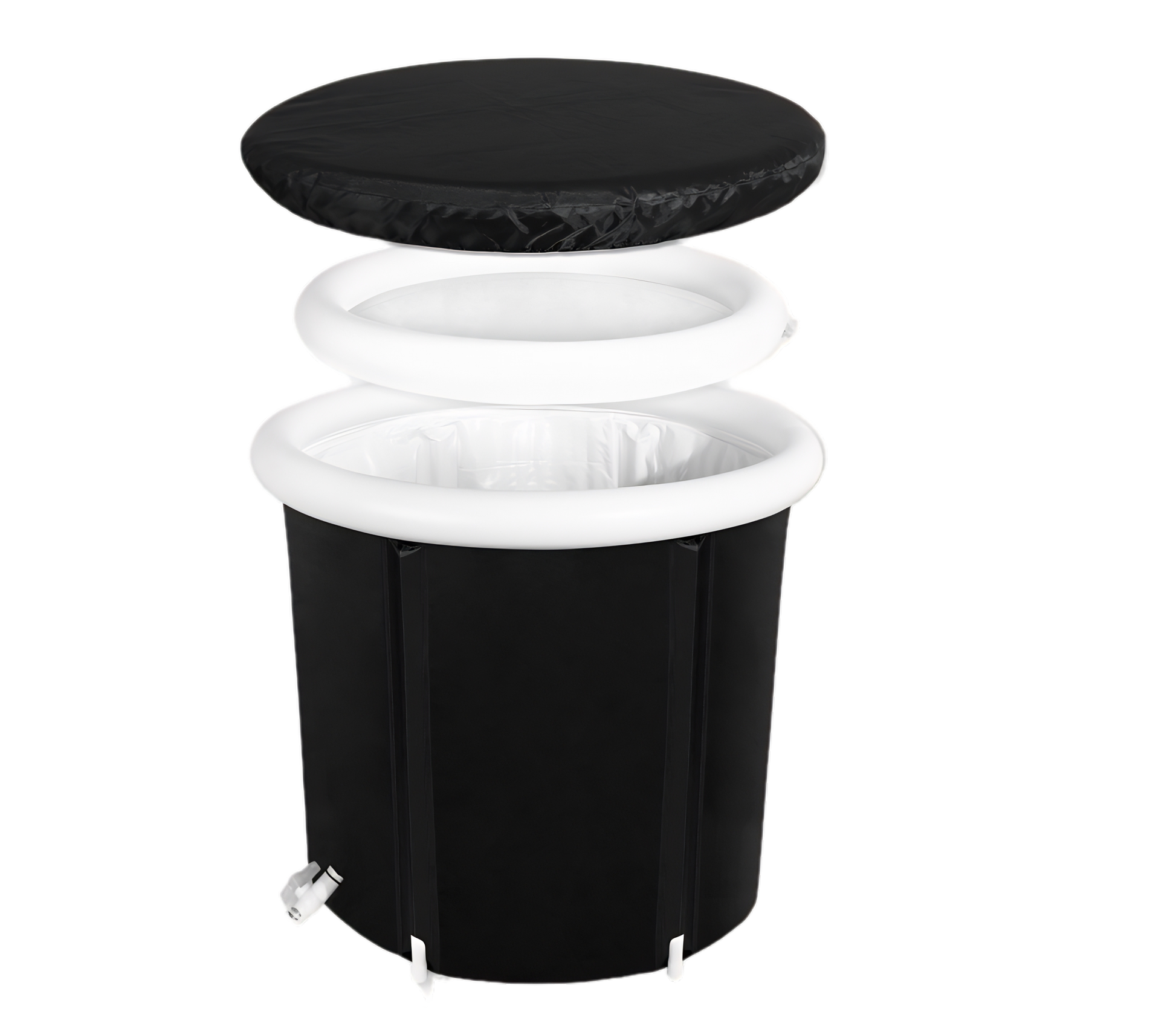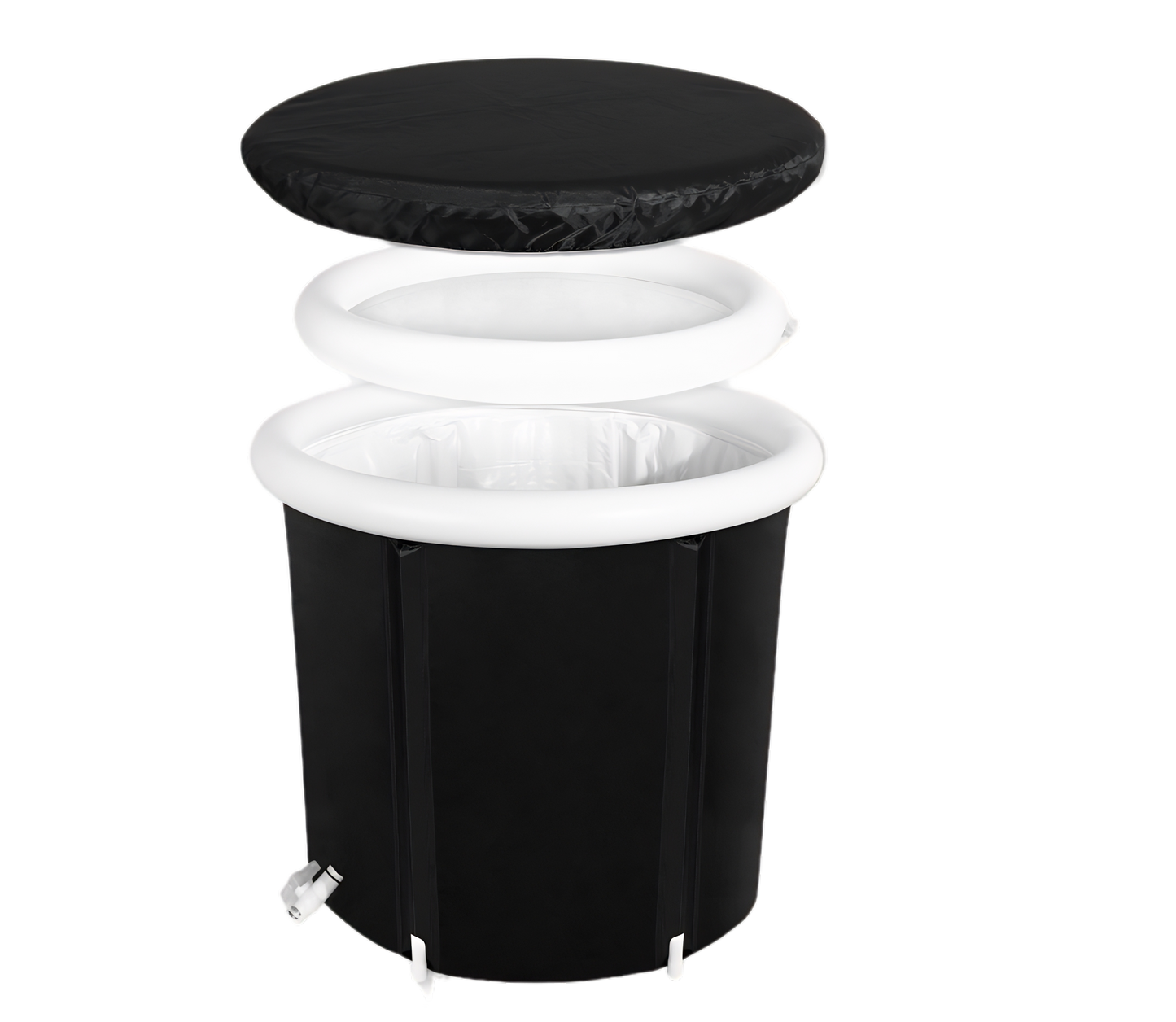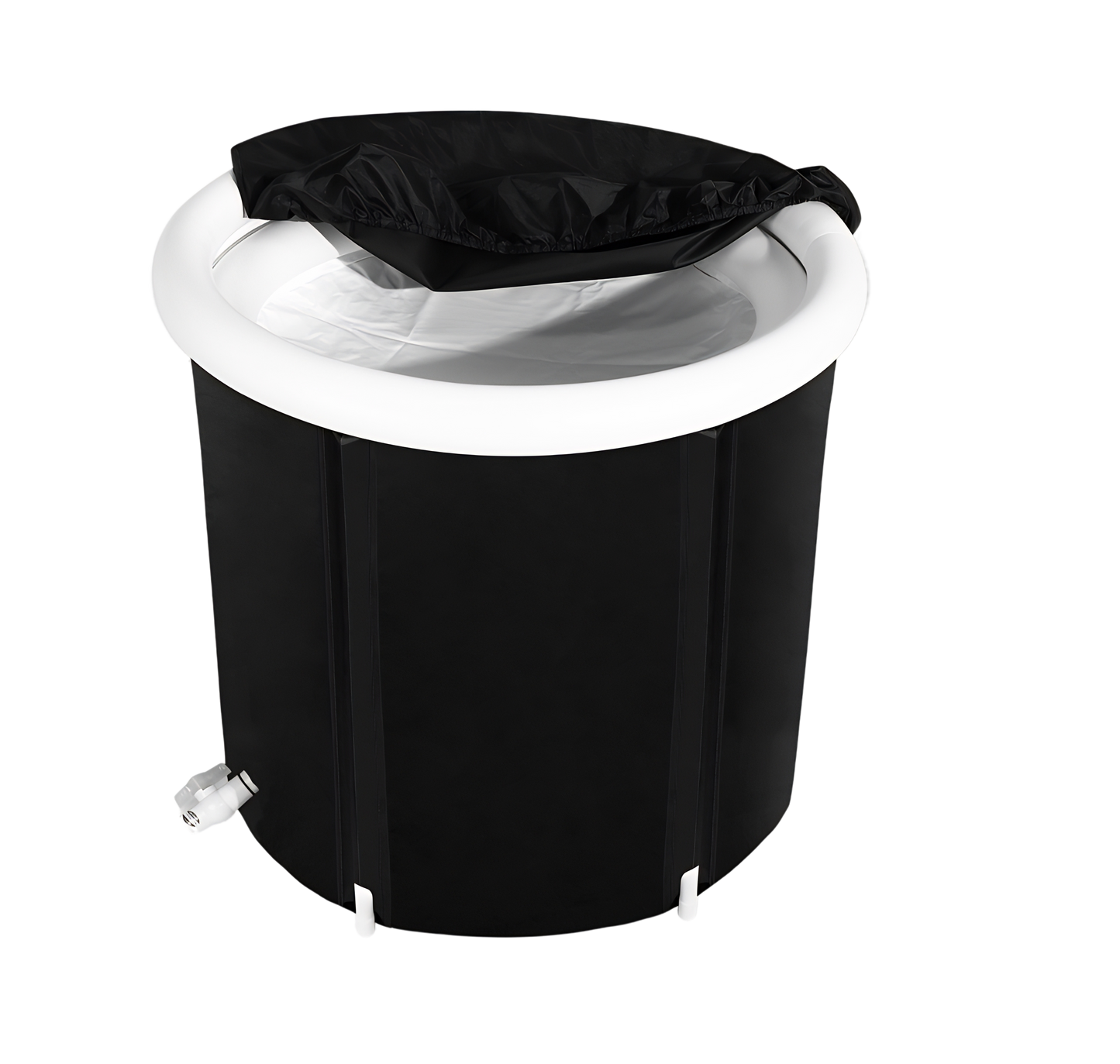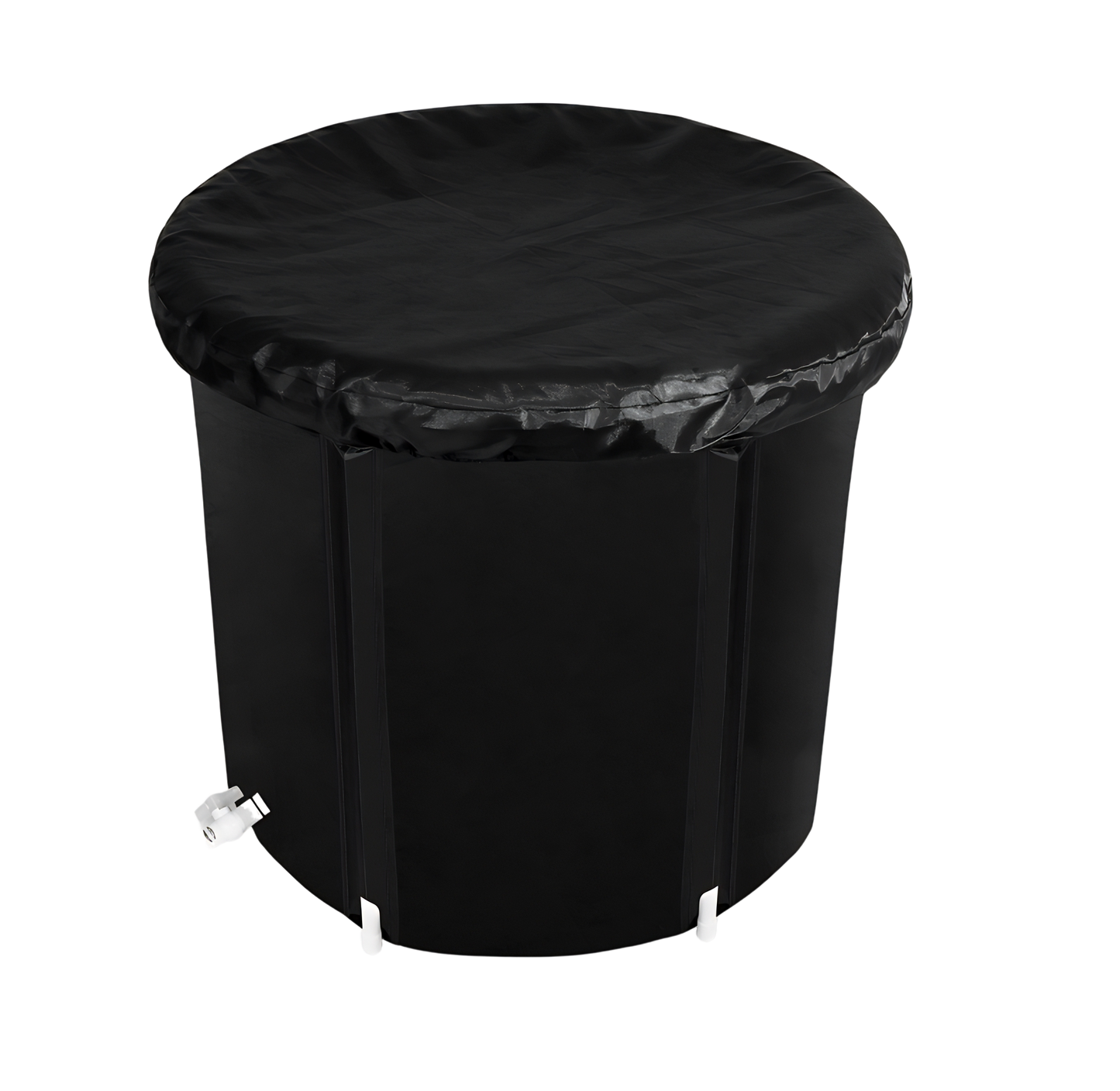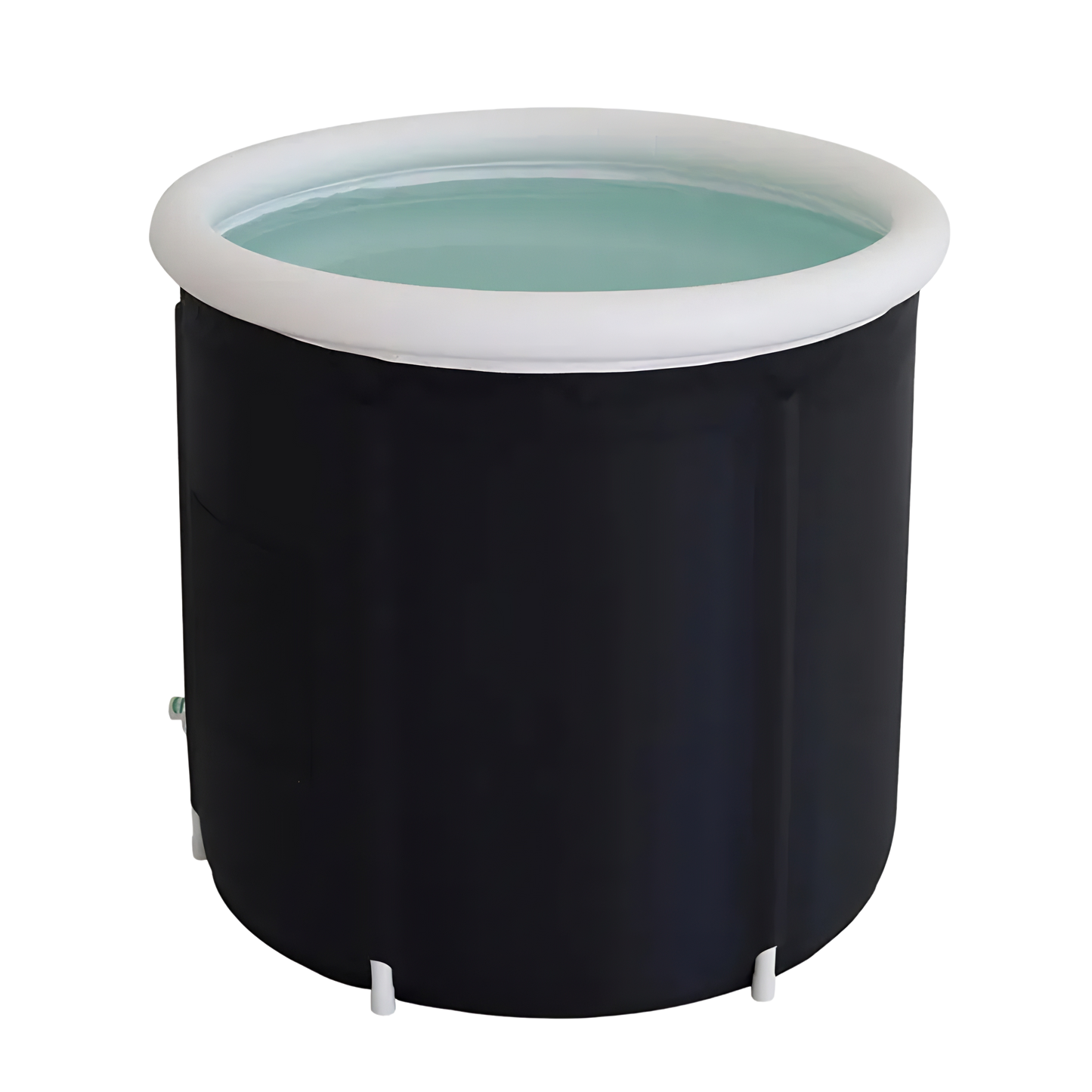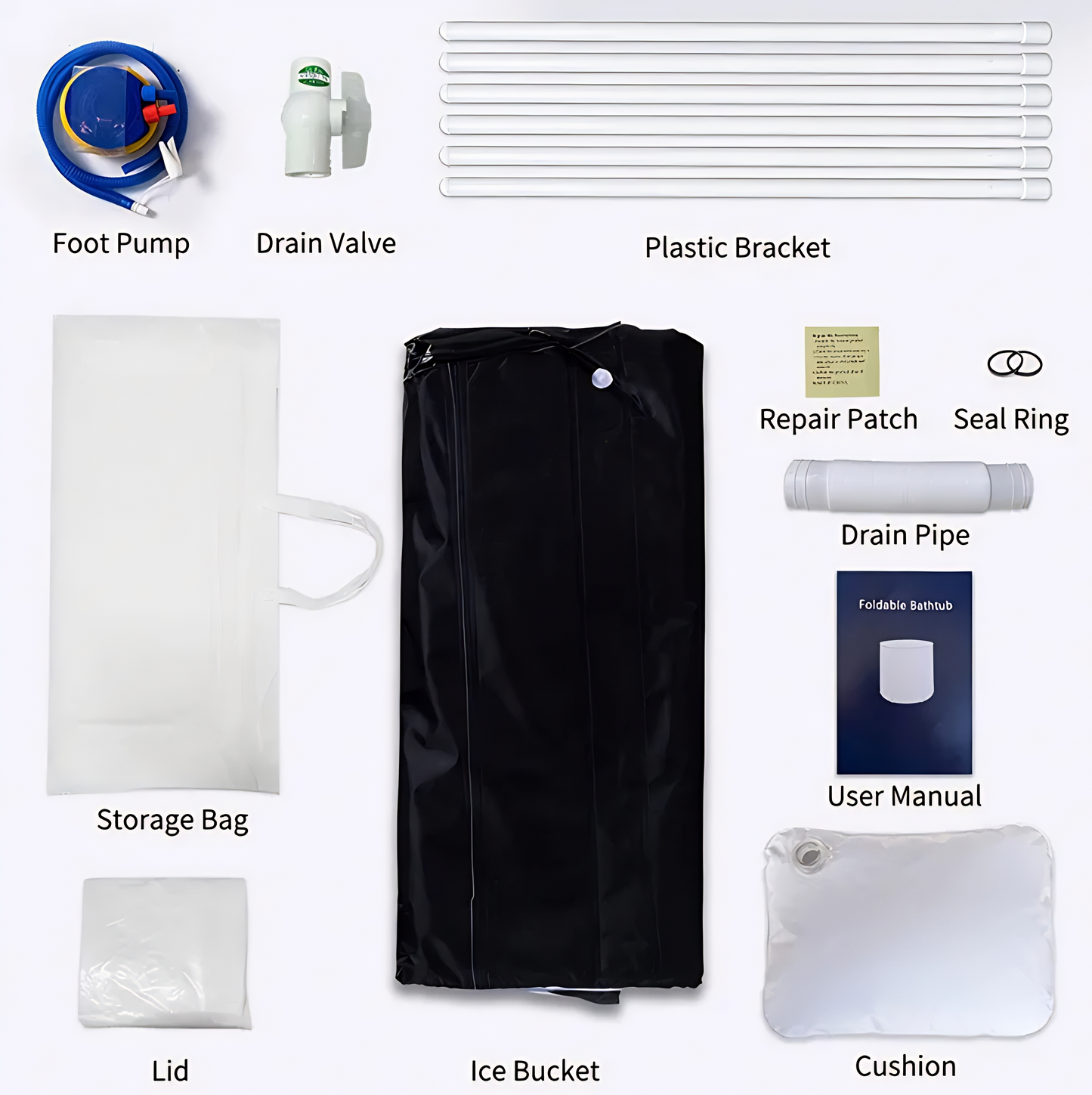Ice baths can be a powerful tool for speeding up postpartum recovery. The physical toll of childbirth on the body can be significant, but with proper self-care and natural remedies, healing can be enhanced. Resting is crucial for allowing the body to recover, while ice helps reduce pain and swelling around the perineum. Compression garments can provide support and aid in the healing process. By incorporating ice baths into your postpartum self-care routine, you can experience quicker healing and a smoother recovery process.
Key Takeaways:
- Ice baths can speed up postpartum recovery.
- Resting is crucial for allowing the body to recover.
- Ice helps reduce pain and swelling.
- Compression garments aid in the healing process.
- Incorporating ice baths into your postpartum self-care routine can lead to quicker healing.
The Basics of Post-birth Recovery
After giving birth, it is important to understand the basics of post-birth recovery. The physical impact of childbirth on the body can vary from person to person, but common symptoms include discomfort, swelling, and muscle strain. To facilitate postpartum healing, there are several essential steps that new mothers can take.
The Physical Impact of Childbirth on the Body
Childbirth places significant demands on a woman's body, both physically and emotionally. The process of labor and delivery can lead to various physical changes and challenges. These include:
- Discomfort in the pelvic area
- Swelling and soreness in the perineum
- Muscle strain in the abdominal and pelvic floor muscles
Understanding the physical impact of childbirth is crucial in determining the appropriate steps for postpartum healing.
Essential Steps for Postpartum Healing
Recovery after childbirth requires time, rest, and self-care. Here are some essential steps for postpartum healing:
- Rest: Resting is key to allowing the body to recover from the physical exertion of childbirth. Adequate sleep and downtime are crucial during this period.
- Ice Therapy: Applying ice therapy to the perineal area can help reduce pain and swelling. Ice packs or sitz baths with cold water can provide relief and promote healing.
- Compression Garments: Wearing compression garments, such as postpartum belly wraps or support underwear, can provide gentle support to the abdominal and pelvic area, aiding in the healing process.
Natural Postpartum Remedies: From Rest to Compression
In addition to rest, ice therapy, and compression garments, there are several natural remedies that can further aid in postpartum healing:
- Herbal Teas: Certain herbal teas, such as chamomile or raspberry leaf tea, can promote relaxation, reduce inflammation, and aid in digestion.
- Sitz Baths: Sitz baths with warm water and natural additives like Epsom salts or witch hazel can soothe the perineal area and promote healing.
- Gentle Exercise: Engaging in gentle exercises, such as postnatal yoga or walking, can help improve circulation, relieve muscle tension, and boost overall well-being.
By incorporating these natural postpartum remedies into their routine, new mothers can support their recovery and promote a smoother healing process.
Ice Baths After Pregnancy: Speeding Up Postpartum Recovery
Ice baths can play a significant role in speeding up postpartum recovery. The cold temperature of the ice helps to reduce inflammation, numb pain, and promote healing. By incorporating ice baths into their postpartum self-care routine, new mothers can experience faster recovery, reduced pain and swelling, and improved overall well-being.
After giving birth, the body undergoes significant changes and needs time to heal. Ice baths provide a natural and effective way to aid in the recovery process. Here are some of the key benefits of incorporating ice baths after giving birth:
- Reduced inflammation: The cold temperature of the ice constricts blood vessels, reducing swelling and inflammation in the perineum area.
- Numb pain: Ice baths help to numb pain and provide relief from discomfort caused by childbirth. The cold temperature acts as a natural analgesic.
- Promotes healing: The cold temperature stimulates blood circulation, which can speed up the healing process by delivering oxygen and nutrients to the affected areas.
- Relaxation and stress relief: Taking an ice bath can provide a sense of relaxation and help alleviate postpartum stress and anxiety.
It is important to note that ice baths should be used with caution and under the guidance of healthcare professionals. Ensure that the water is at a safe temperature and gradually immerse yourself in the bath. If you have any underlying health conditions or concerns, consult with your healthcare provider before incorporating ice baths into your postpartum self-care routine.
|
Benefits of Ice Baths After Giving Birth |
|
Reduced inflammation |
|
Numb pain |
|
Promotes healing |
|
Relaxation and stress relief |
Conclusion
Embracing Cold Therapy for Postpartum Healing
Embracing cold therapy, including ice baths, can be a game-changer for postpartum healing. The benefits of cold therapy after giving birth are numerous. Cold therapy helps reduce pain and inflammation, providing much-needed relief for new mothers. The cold temperature of ice baths constricts blood vessels, reducing swelling and promoting faster healing in the perineal area. By incorporating ice baths into their postpartum self-care routine, new mothers can experience quicker recovery and improved overall well-being.
Precautions and Healthcare Advice for New Mothers
While cold therapy can be beneficial for postpartum healing, it is important for new mothers to take precautions and seek healthcare advice before incorporating ice baths into their routine. It is crucial to ensure that there are no underlying health conditions or complications that may be aggravated by cold therapy. Consulting with healthcare professionals can provide personalized guidance and recommendations tailored to individual circumstances. They can assess the overall health of new mothers and determine if ice baths are a suitable option for them. Prioritizing safety and seeking professional advice is essential to ensure a safe and effective postpartum healing journey.
Cold therapy, when used correctly under professional guidance, can be a powerful tool for postpartum healing. By adopting this natural postpartum remedy, new mothers can experience reduced pain and inflammation, faster healing, and an overall improvement in their postpartum well-being. Embracing cold therapy, such as ice baths, alongside other essential steps for postpartum healing, allows new mothers to take control of their recovery process and feel empowered on their post-birth journey to better health.
FAQ
What are the benefits of ice baths after pregnancy?
Ice baths after pregnancy can help reduce pain and swelling, promote faster healing, and enhance overall postpartum recovery.
Also Read More: How to do Ice Baths While Pregnant.
How do ice baths aid in postpartum healing?
Ice baths, with their cold temperature, help reduce inflammation, numb pain, and promote healing, leading to a quicker recovery after giving birth.
Are ice baths a safe method for postpartum healing?
Ice baths can be safe and effective for postpartum healing, but it is important to consult with healthcare professionals and take necessary precautions, especially if there are underlying health conditions or complications.
Read More in our detailed article: Are Ice Baths Safe During Pregnancy?
Can ice baths be incorporated into a postpartum self-care routine?
Yes, ice baths can be incorporated into a postpartum self-care routine to speed up recovery, reduce pain and swelling, and improve overall well-being. However, it is important to seek healthcare advice and guidance for personalized recommendations.
Read More in our detailed article: Ice Baths vs Warm Baths During Pregnancy.
Disclaimer
The information provided in this article is for educational and informational purposes only and is not intended as medical or health advice. While we strive to provide accurate and up-to-date information, we are not health professionals. Therefore, any reliance you place on such information is strictly at your own risk.
Pregnancy is a sensitive period, and what might be safe for one individual may not be for another. We strongly recommend consulting with a healthcare provider or medical professional before making any decisions regarding ice baths or any other health-related practices during pregnancy. This article does not substitute for professional medical advice, diagnosis, or treatment.
We do not accept any responsibility for any liability, loss, or risk, personal or otherwise, incurred as a consequence, directly or indirectly, from any information or advice contained here. By reading this article, you acknowledge and agree that neither the author nor the website is liable for any losses or damages that may arise from your choice to use or not use the information provided.

